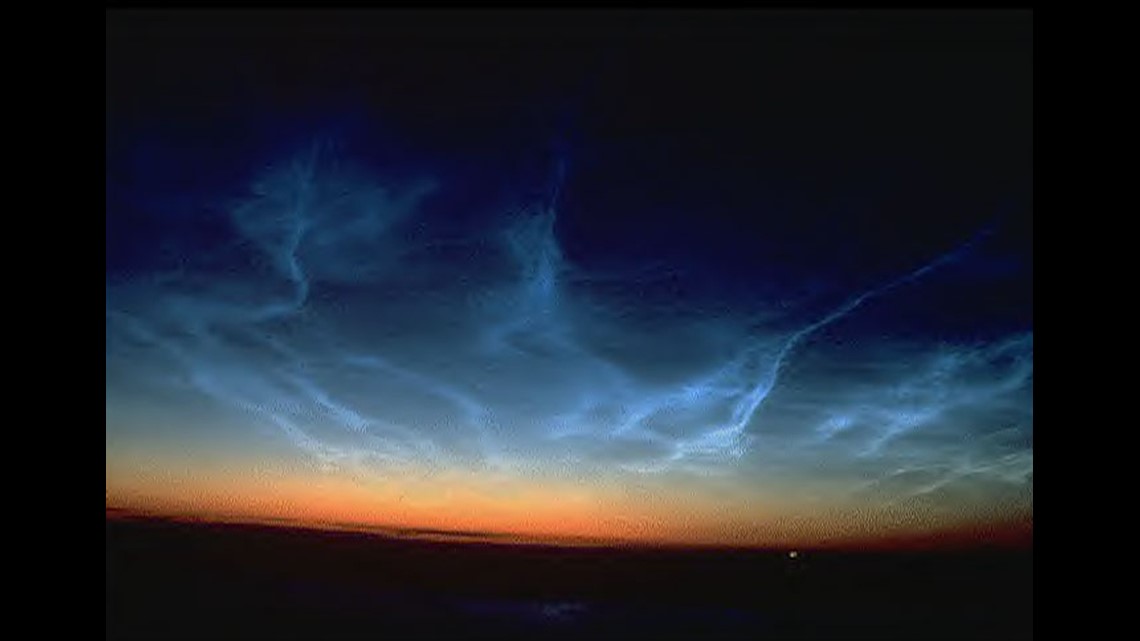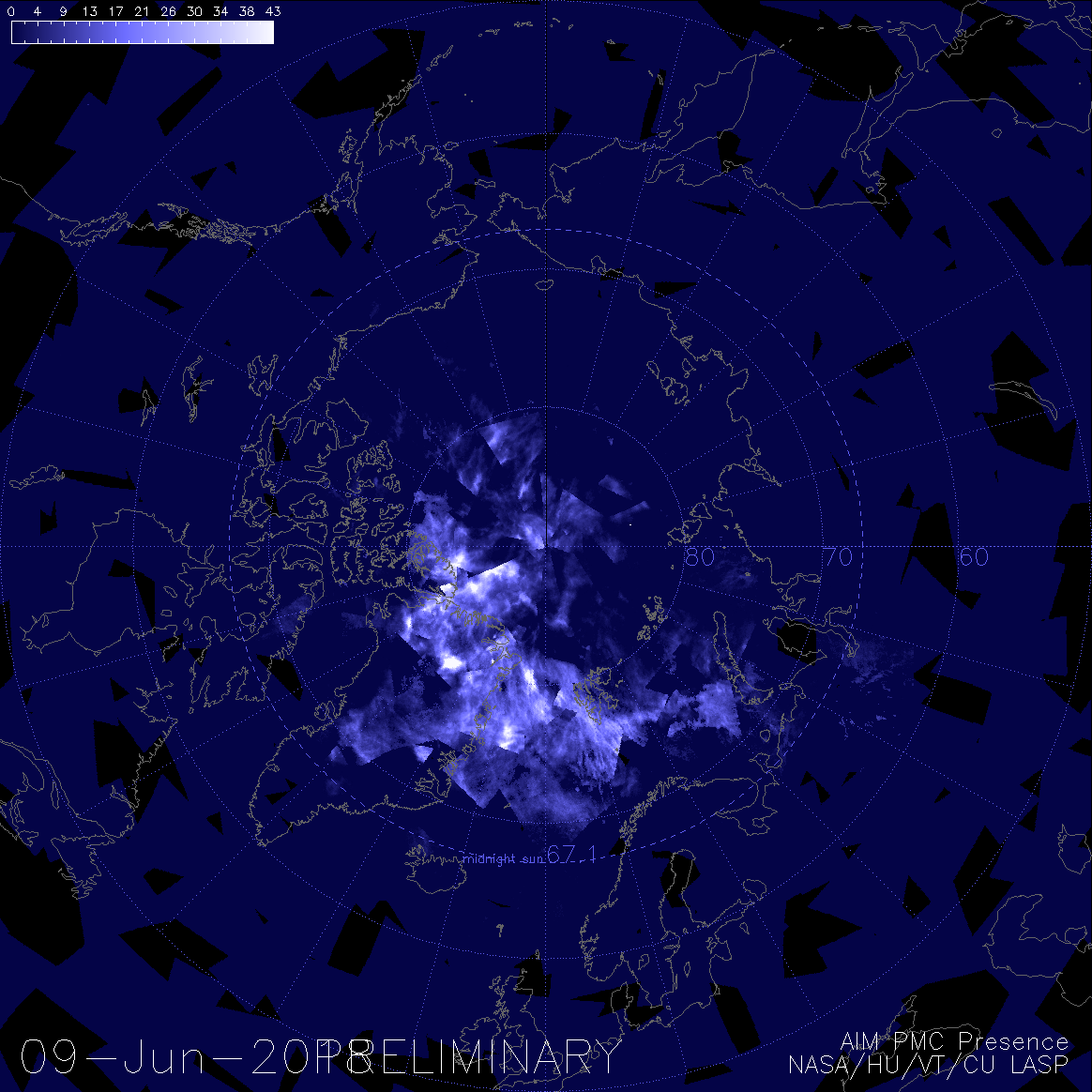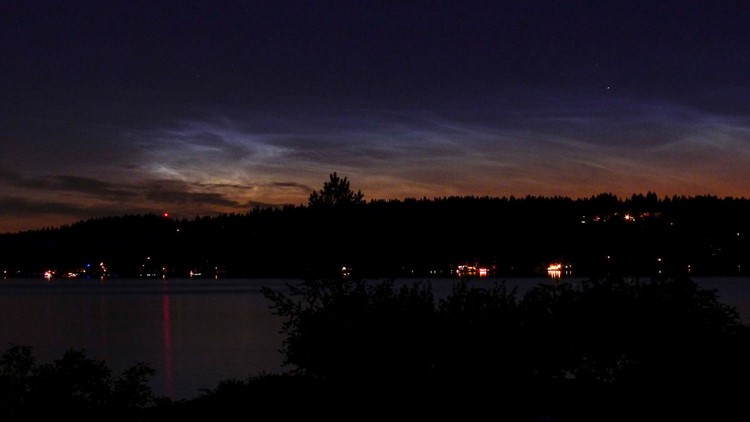Monday started with clear skies and an unusual phenomenon above Lake Washington. Between 3 a.m. and 4 a.m. thin bright white clouds appeared in the night sky. These were noctilucent clouds – the highest clouds in the earth's atmosphere!
The unusual phenomenon also appeared over Puget Sound last Tuesday an hour or so before sunrise.
Our usual high clouds may reach up to four to five miles, but noctilucent clouds occur around 50 miles up in the earth's mesosphere – basically on the edge of space. These clouds are made up of very tiny ice crystal – 100 nanometers or smaller. A nanometer is 1 billionth of a meter.
Researchers are still looking for a clear explanation of these clouds. They know that they only occur around local summer, and they know they only occur at higher latitudes. But much of their origin is still being figured out.


The mesosphere is an extremely dry part of the atmosphere. It is 100 million times dryer than air from the Sahara desert, according to NASA. And it is also extremely cold – about -125°C in the summertime.
But somehow the conditions are occasionally right for those tiny ice crystals to form. There seems to be wide agreement that moisture for them likely works its way up from the lower atmosphere. In fact, the exhaust from rockets (including the Space Shuttle) has introduced enough water into the region to form noctilucent clouds. But these tiny crystals need something to form on. This appears to usually be dust particles. Their source is still controversial with theories ranging from volcanoes injecting dust at high altitudes to the remains of meteors that burn up entering the atmosphere.

(Photo: Courtesy NASA)
NASA launched a satellite to study the clouds in 2006 called the Aeronomy of Ice in the Mesosphere (AIM). It is still operating showing the extent of noctilucent clouds. Unfortunately, it runs about three days behind in processing so our most recent image is from June 9, but you can see how they seem to hug the polar regions. We'll keep an eye out for today's images.
Whatever the cause, noctilucent clouds are occurring more often. They have only been documented since 1885. And a century ago they were only observed at latitudes above 50°N (or south). However, in recent years they have been seen occasionally as far south as 40°N (or south).
I have seen them from Seattle before but only far to the north. This morning's noctilucent clouds were much higher in the sky.
The clouds are too thin to be seen in a daytime sky. They can only be seen when they are illuminated by the sun when it is far below the horizon and our sky is dark. That's why this morning's clouds were seen between 3 a.m. and 4 a.m. – more than an hour before sunrise.
We have more clear weather headed our way so keep an eye out about 30 to 90 minutes before sunrise (or after sunset) and look towards the north to the northeast sky (or north to the northwest sky after sunset).
Look for the long luminous blue-white clouds that tangle across the sky. You'll be looking at the edge of space!



